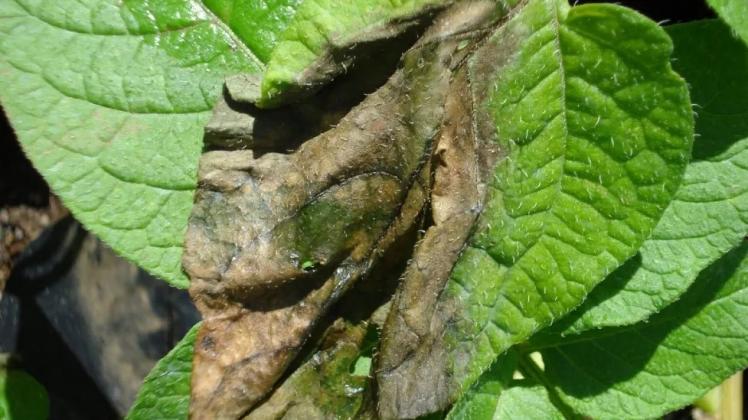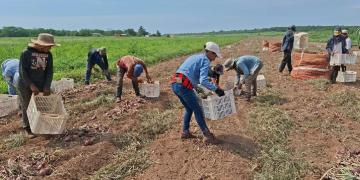EEUU: New groundbreaking online tool for Phytophthora research unveiled: The pathogen ‘Tree of Life’
A new online tool – the first of its kind for plant pathogens – will help researchers across the globe identify, detect and monitor species of Phytophthora, ,,

,,,which have been responsible for plant diseases ranging from the devastating 1840s Irish potato famine to sudden oak death that still plagues in West Coast oak populations.
As Mick Kulikowski reports in a news release by NC State University, the new pathogen “Tree of Life” provides a plethora of information about each of the more than 192 formally described Phytophthora species – including their evolutionary history and relationships within groups – as well as more than 30 other informally described taxa.
It also includes genetic sequence data from several locations on the genetic blueprint, or genome, of each species. Other important data include the global locations of each species, the plants that host the pathogen, and where the pathogen resides in – or on – its plant hosts.
“We’re taking all known Phytophthora species and putting them into a living “tree of life” using the Tree-Based Alignment Selector (T-BAS) toolkit that was developed by my colleague Ignazio Carbone,” says Jean Ristaino, William Neal Reynolds Distinguished Professor of Plant Pathology at North Carolina State University and corresponding author of a paper in PLOS ONE that describes the tool. “Researchers can place emerging threat species into the open-access tree and look at which groups are expanding and evolving.”
The new tool will allow researchers to update plant disease information in real time.
“The real key to preventing disease outbreaks is to grab the signals before the outbreak occurs,” said Ristaino, who directs NC State’s Emerging Plant Disease and Global Food Security cluster. “T-BAS could be useful as a tool for disease surveillance and for figuring out the next new lineage that might emerge. Researchers can query this database and the tree will incorporate the new species.”
The first species in the genus Phytophthora, or “plant destroyer,” was described and named in 1876. Phytophthora are present in the air, soil and water and can cause disease on food crops, ornamental plants and trees.
“About 150 new Phytophthora species have been identified since 2000,” says NC State Ph.D. student Allison Coomber, who developed the tool with the team.
“This is an unusually large number of plant pathogen species,” Ristaino said. “Many Phytophthora species have broad host ranges, so they can ‘move’ over wider areas.”
Ristaino, who published a paper in Nature in 2001 identifying the strain of Phytophthora infestans that caused the Irish potato famine, hopes to eventually integrate physical maps with the T-BAS data to help provide better pathogen monitoring between states or countries.
“We have mined all published data on Phytophthora,” Ristaino said. “Collaboration and sharing data makes much more sense than being secretive.”
Ristaino added that the Phytophthora T-BAS Tool is housed in the DeCIFR web portal available through NC State’s Center for Integrated Fungal Research, which explores fungi and the roles they play in agricultural, animal, environmental, and human health systems. Further information on access to the tool can be found on the Ristaino Lab website.
Coomber is the paper’s first author. Amanda Saville, manager of the Ristaino lab, and Ignazio Carbone, professor of plant pathology and director of NC State’s Center for Integrated Fungal Research, also co-authored the paper. The work was funded by National Science Foundation National Research Training Grant Award No. 1828820 and by the U.S. Department of Agriculture’s APHIS Plant Protection Act 7721 grants AP21PPQ&ST000020 and AP21PPQ&ST000062.
Source: NC State University
Photo: A Chilean potato shows late blight caused by Phytophthora. Credit and courtesy of Jean Ristaino, NC State University.
Fuente: https://www.potatonewstoday.com/2023/04/05/new-groundbreaking-online-tool-for-phytophthora-research-unveiled-the-pathogen-tree-of-life/




